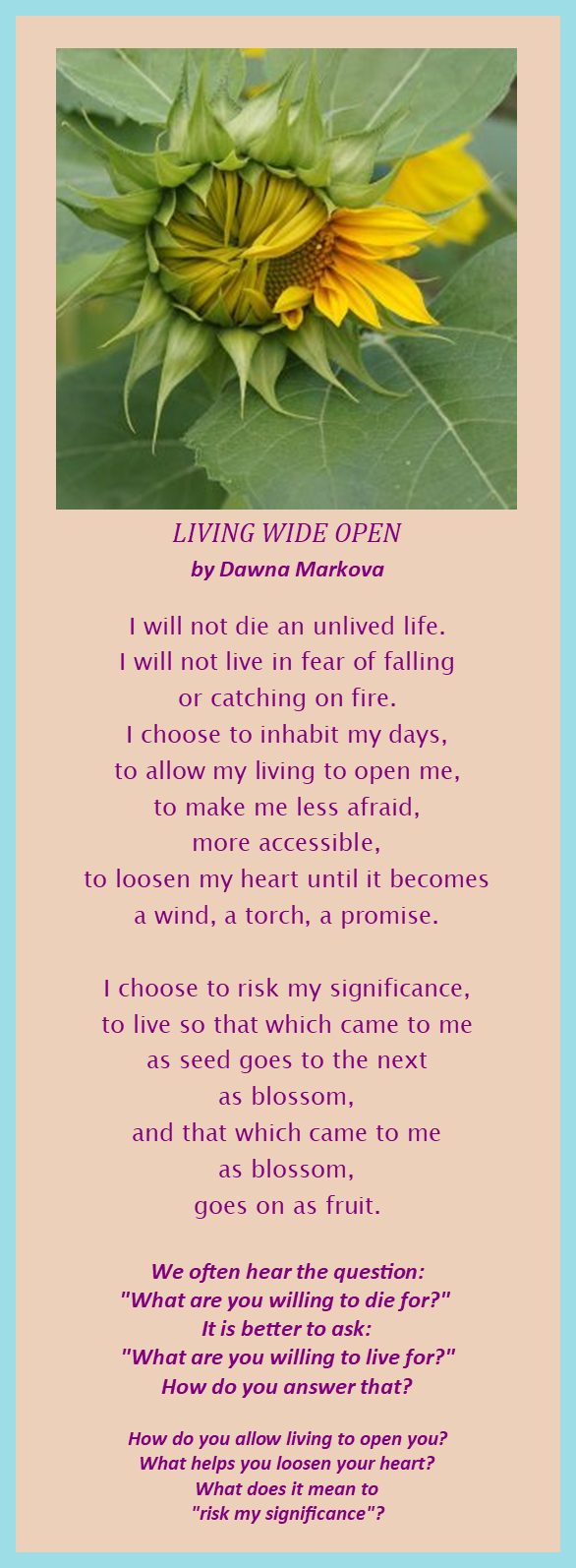life
Five Ways of Seeing
 Life is about learning to see what we’re looking at—if we actually see it at all.
Life is about learning to see what we’re looking at—if we actually see it at all.
It takes a while, but eventually, the really perceptive soul discovers that there are actually five ways of seeing as we go through life.
At the first level of insight, we see only what’s in front of us. The immediate becomes the center of the world. We do not see beyond ourselves because we have drawn the circle of life too small, too close, too narrowly. The older next-door neighbor, the colleague with the sick child, the friend whose life is careening off the tracks are part of my consciousness—but not part of my heart. Their agendas do not compel me to action. Their lives do not really touch mine.
At the second level of insight, we see only the obvious, not what drives the obvious. Not what’s under the obvious. We come to see that the other has the same feelings we do and that, like ours, they need to be heeded. We see more of the world suddenly, but find it as lonely and confused as our own.
At the third level of insight, we see a broader world, but only from our own perspective. Everyone should live in a democracy, we decide. The whole world would be better off if everyone were like us. We are the acme of the universe, we know. Then, all of our efforts go into making the rest of the world like us. Except that never happens and we cannot for the life of us figure out why.
At the fourth level of insight, we see a changing canvas and realize suddenly that nothing is stable, all things are in flux. The question, of course, is whether we realize that we, too, are in the process of change now—because we have seen that nowhere does life stand still.
At the fifth level of insight, we learn to truly see beyond the center of the self and find that we are all alike, all trying to find one another, all wishing to be human together.
At that point, of course, we see our differences and find that they are beautiful—and see our likenesses and discover that they are the stuff of our growth. We do not need to be anyone else now. Instead, we can be everyone else now, understanding them, learning from them—trusting that I can change and become even more myself at the same time.
The question, of course, is, at what level of insight are we now? What will it take to grow beyond ourselves and discover the rest of life?
–from Two Dogs and a Parrot: What Our Animal Friends Can Teach Us About Life by Joan Chittister (BlueBridge)
Continue ReadingLiving Wide Open
What have your relationships taught you?
 Life goes through a good many more stages, I think, than the ones most commonly identified—childhood, youth, adulthood, middle age, old age. I don’t think that life’s stages have much to do with age, with the number of years we’ve spent breathing, at all. I think the parts of life are best described by the kinds of relationships most commonly made in each.
Life goes through a good many more stages, I think, than the ones most commonly identified—childhood, youth, adulthood, middle age, old age. I don’t think that life’s stages have much to do with age, with the number of years we’ve spent breathing, at all. I think the parts of life are best described by the kinds of relationships most commonly made in each.
The years and phases of life call for different levels of relationship. We talk, for instance, about playmates, buddies, gangs, schoolmates, friends, acquaintances, colleagues, lovers, soul mates, and then, at the end, friends again. Each of these various types of relationships represents a stage in our own maturity and development. They teach us, a level of the soul at a time, what it means to discover that we are not alone in life, not the center of life, not the standard of value for anyone else’s journey through life.
We learn something valuable from each and every one of them about what it means to be alive, a social being, a companion on the journey.
Playmates provide companionship; buddies give us a sense of security as we begin to learn our way through life; gangs give us a feeling of belonging; schoolmates bring a feeling of camaraderie in the face of the crowd; friends provide the beginning of intimacy; acquaintances become a lifeline in strange places; colleagues provide professional identity; lovers teach us the otherness of life; soul mates bring us home to the self; friends put cement under our feet again just when we begin to realize that our own legs are not as strong as they used to be. It is a lifelong series of coming to understand ourselves through our feelings.
The relationships we form at each stage make every stage that follows both easier to negotiate and more meaningful. It is a precious thing, relationship, meant to be savored and certain to be demanding. It is our relationships that teach us how to be a human being rather than a prima donna, a useful member of the human race rather than a spoiled diva.
Our relationships grow us up and make life possible—all the way to the grave. It is incumbent upon us to make them possible, both for the other’s sake and for our own.



